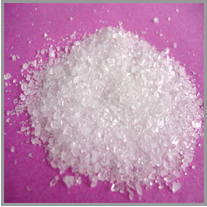Zeolite
Zeolite is a group of porous aluminosilicate minerals primarily composed of aluminum, oxygen, silicon, and metal(s). Although there are around 40-50 naturally occurring zeolites, only a handful of them have large-scale applications; there are over 250 different synthetic zeolites.
Industrial applications:
These materials are most commonly used as catalysts and absorbents; their porous cage-like structures gives them molecular sieve functionality which enables them to discriminate molecules by their size. Zeolites are also used in the production of laundry detergent, certain asphalt & concrete, water filters, air treatment, odor & gas absorber, animal feed & agriculture, FCC catalysts, and it is being looked into for larger scale biological uses.
The main competitors (in general) of zeolite is bentonite, fuller’s earth, and silica gel/sand.
Synthetic zeolite can be produced using the two main components alumina and silica.
Additional Notes:
* Zeolite absorbents were used to help absorb some of the radioactive cesium from the Fukushima Daiichi nuclear disaster.
* As catalysts, zeolites can restrict molecules to small spaces and cause them to deform both in structure and in chemical reactivity. This phenomenon is taken advantage of in catalytic cracking processes. Example- FCC (fluid catalytic cracking)
* Each new zeolite structure must be approved by the International Zeolite Association Structure Commission and will receive its own three letter code.

| CAS | Product | Chem | Purity | Product Code | Quote |
|---|---|---|---|---|---|
| 1318-02-1 | Zeolite | - | % | INM-20-X | Quote; |
| Chemistry | TDS | SDS |
|---|---|---|
| Request TDS | Request SDS |
Industrial/Application_tags:
Absorbent, Molecular Sieve, Environment






